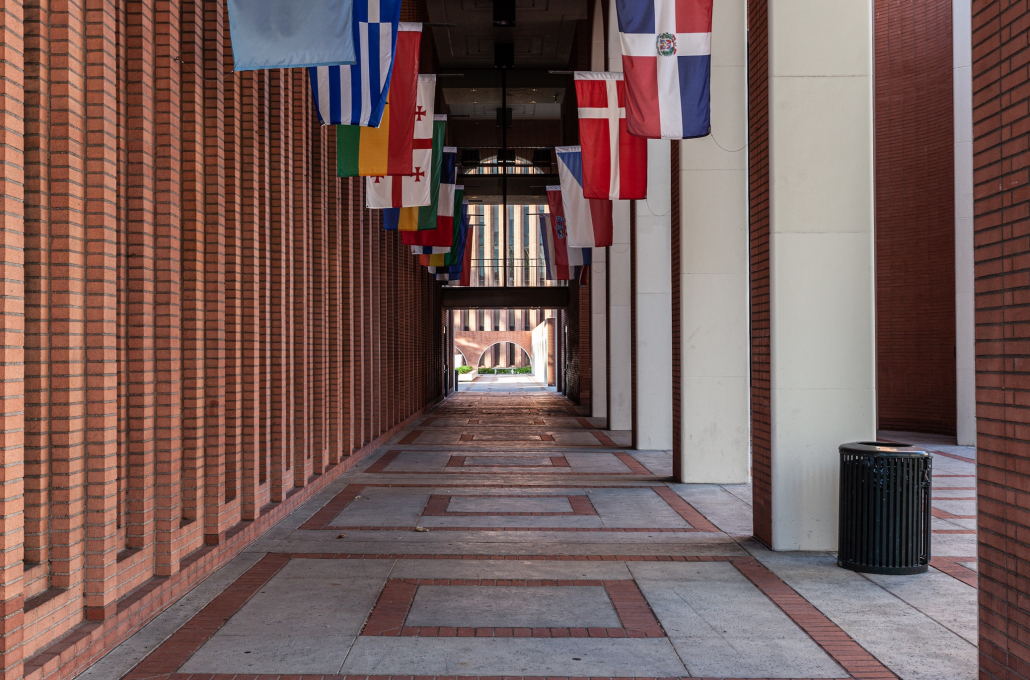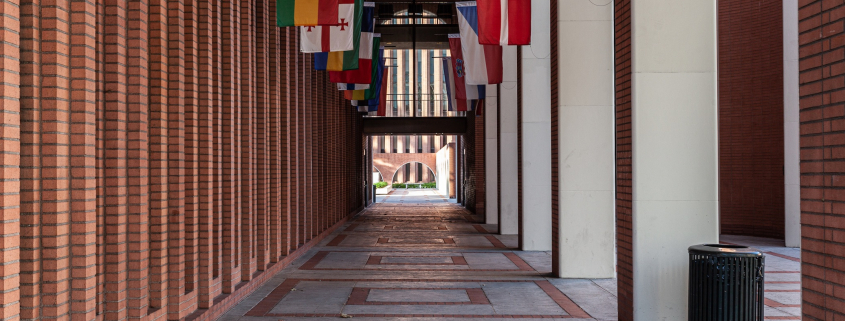International students react to Queen Elizabeth’s death

Queen Elizabeth II’s death marks the end of the longest reign of a monarch in the Royal Family’s history.
During her 70 years on the British throne, she witnessed, according to the New York Times, “epic social and economic change.” She was crowned in 1953 in the first coronation to ever be televised. Her reign lasted through the times in which the United Kingdom entered and subsequently left the European Union almost five decades apart. Just two days ago, she made her final public appearance by appointing Liz Truss as the U.K.’s new prime minister.
The Daily Trojan spoke with international students from some of the Commonwealth countries to gather their reactions to her death and what will follow.
In the face of increasing scrutiny over the Royal Family’s role in modern Britain and the Commonwealth abroad, the Queen was also at the head of the family during years fraught with scandal and growing departure from the Crown. This included Princess Diana’s tragic 1997 passing, the allegations of sexual misconduct against Prince Andrew, the independence of countries such as Guyana, Trinidad and Tobago and Barbados removing the Queen as their head of state.
Domingo Powell, a sophomore majoring in international relations, global business, originally from the U.K., said that he had first heard of Elizabeth’s passing after receiving texts from his mother.
A strict set of procedures created in preparation for the Queen’s passing — known as “Operation London Bridge” — has now begun. A grand funeral will be held 10 days from now, closing the London Stock Exchange for the day. Her son, now King Charles III, has ascended the throne and will be officially crowned at a coronation in roughly one year, ceremonies that will spend billions of British pounds. The BBC will be barred from airing comedic shows for the next 12 days, and a total reprint of every pound note with the new monarch’s face on them will begin to take place. Additionally, the lyrics to the national anthem were immediately changed to “God Save the King” rather than “God Save the Queen.”
Being a British citizen, Diora Juraboeva said her country’s culture heavily involves the Queen, and that affects the way she feels about her passing.
“In Britain, people are very passionate about the monarchy generally. Everyone really cares about it a lot,” Juraboeva, a freshman majoring in arts, technology and the business of innovation, said. “Recently, we had the [Platinum] Queen’s Jubilee, and everyone cared about that a lot. We dressed up postboxes with Jubilee knitted hats and every school always did artwork for the Jubilee.”
The Queen’s death will largely affect countries’ procedures, particularly within Commonwealth nations like Canada, New Zealand, Australia and India, which will observe national periods of mourning alongside Britain.
“The economy in the U.K. is massively weighed on the Queen’s presence,” Powell said, “and she’s also just a good person. It’s good to be able to look up to a nice figurehead.”
Juraboeva said she was surprised to hear about the Queen’s death.
“There have been many instances where the Queen has been unwell, like she’s had COVID, , and she was completely fine, so it kind of felt like she was indestructible,” Juraboeva said. “We knew that she was old, and she would die eventually, but it was just very sudden. Just one day out of nowhere, she suddenly fell ill and suddenly died. I guess we were all expecting it to be more of a gradual process.”
The Queen’s state, wellbeing and activities are a source of interest for Britons, Juraboeva said, so the news of her passing deeply affected many.
“I think everyone is very involved with the Queen’s life, and I feel like a lot of people would be very upset about it,” Juraboeva said. “Personally, it is quite upsetting since she has been there my whole life, so it feels kind of weird, considering the fact that we do spend a lot of time talking about her.”
In regards to how she feels about the monarchy itself, Juraboeva offered two perspectives.
“I don’t think it’s very practical, considering the fact that the monarchy doesn’t really do anything. They’re just like figureheads,” Juraboeva said. “But I feel like a lot of people really look up to that, even if they don’t have much of a big role in society. The Queen’s speech every Christmas is [a] pretty big deal, and everyone sits down just to listen to it, so I guess she’s a big part of the culture, but in terms of what they do, it’s very limited.”
Reagan Wang is a citizen of New Zealand, which is a member of the Commonwealth of Nations. Wang, a freshman majoring in physics and computer science, found out about the Queen’s death via social media and “didn’t have much of a reaction.”
“Aotearoa [the Maori name for New Zealand]’s relationship with the queen is a little bit weird,” Wang said. “Aotearoa is still a proud member of the British Commonwealth, but there has been some controversy surrounding both the British crown as well as the British Royal Family itself.”
His thoughts on the monarchy are somewhat similar.
“As somebody who doesn’t live in Britain but still has the Queen as our official head of state, it doesn’t really impact us because our tax dollars aren’t being used on the monarchy unless they visit or something,” Wang said. “I definitely do believe that monarchy is kind of outdated though.”
As for how he imagines this will affect New Zealand, Wang said he does not anticipate much of a disruption.
“The streets of Auckland aren’t going to be in anarchy,” he said. “As far as I know, I’m not even sure if there is any specific protocol for Aotearoa when a British monarch dies. It’s been so long since a British monarch died that I’m not even sure if New Zealand remembers how to mourn one.”

